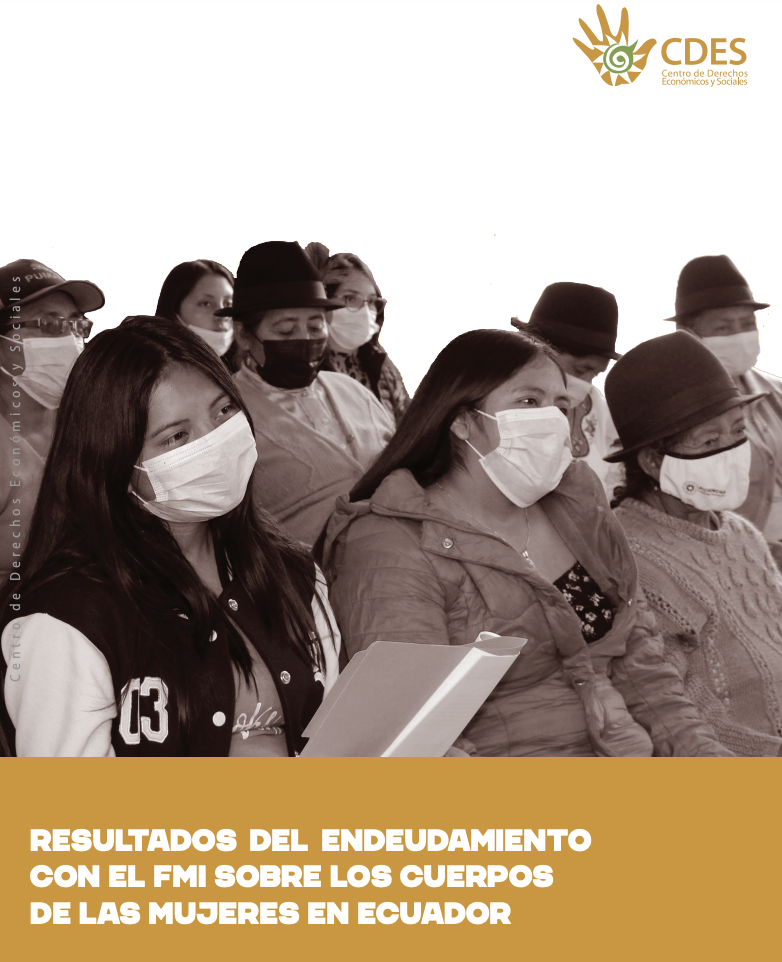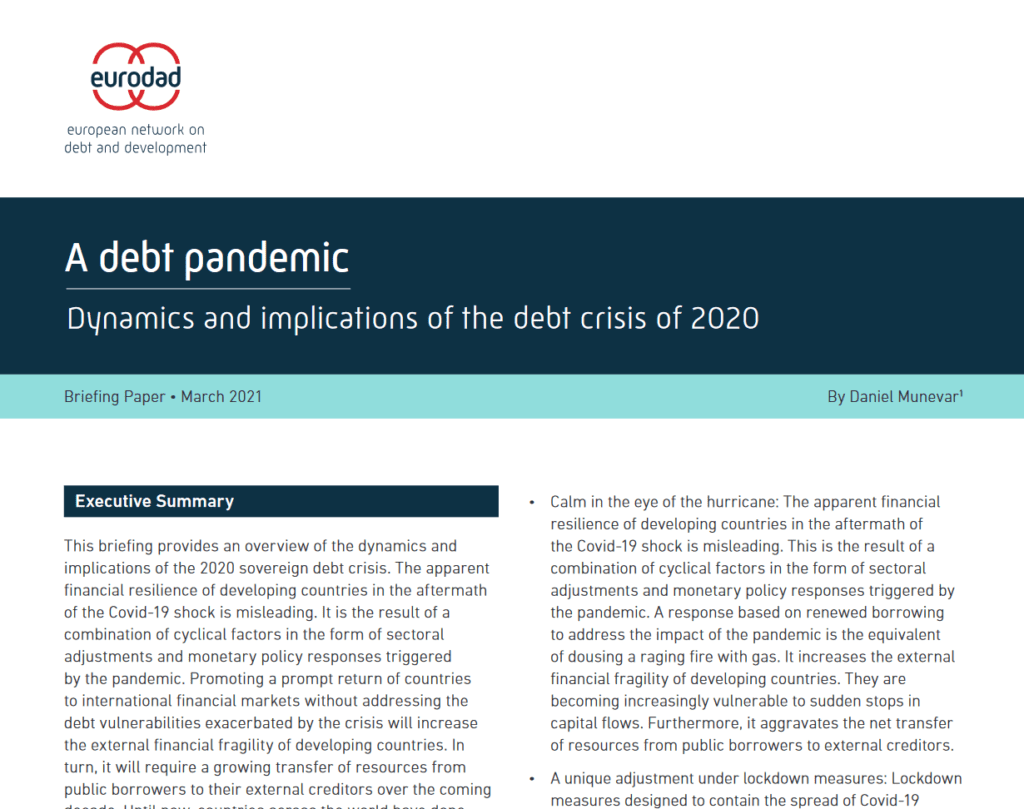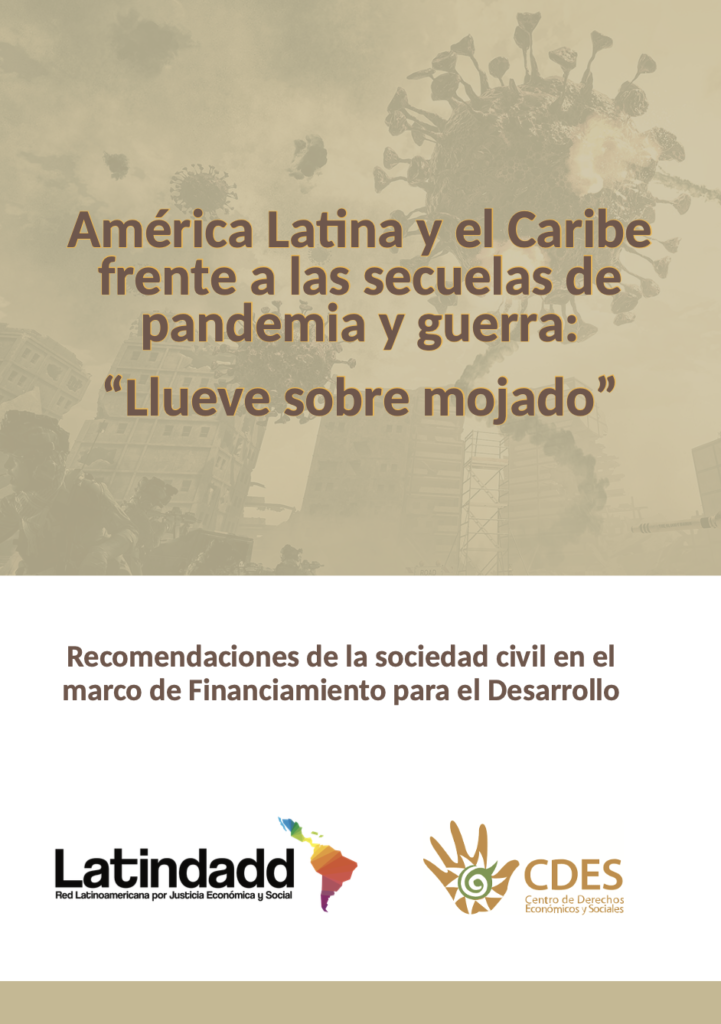
Two years after a global pandemic, the measures of austerity have profoundly exacerbated inequalities. The dominant characteristics of austerity, which include inadequate and failed public services in education, health, social protection; income inequality driven in part by regressive taxes; and a skeletal role of the state built by privatization schemes. All this has led to a systematic erosion of the resilience of public systems, as well as of a social contract that safeguards the redistribution of wealth, resources and public goods towards equity and compliance with human rights.
This paper published by CDES examines the dynamics and implications of gender austerity in Ecuador in the context of its 27-month IMF loan program for USD 6,500 million, started in 2019 and redefined at the beginning of the pandemic in 2020 (IMF 2021). The fiscal consolidation program attached to the loan includes a wide range of measures. For example: extensive cuts in public spending focused on the health sector, relief measures labor deregulation, elimination of fuel subsidies, restrictions on ability of the central bank to finance liquidity problems in the pandemic crisis and privatization of state companies and public services, among many others.




